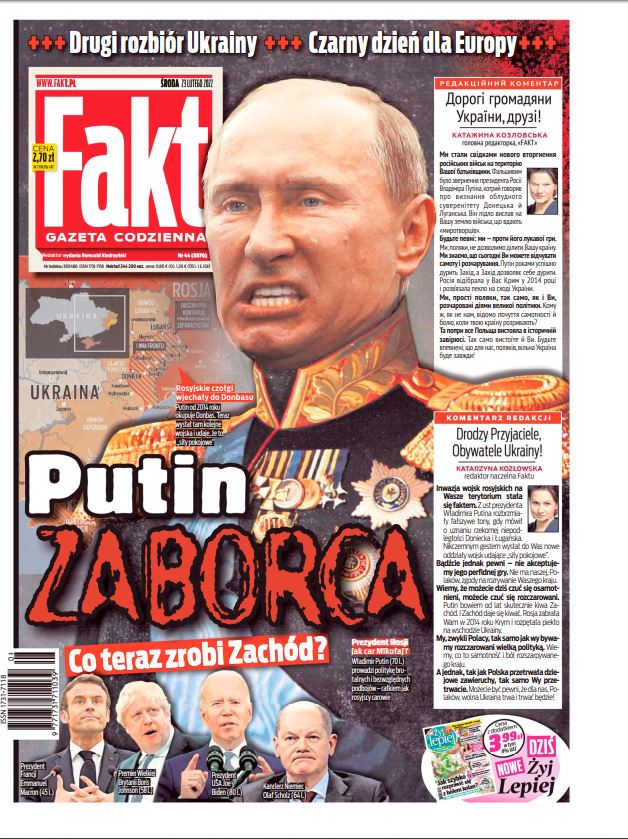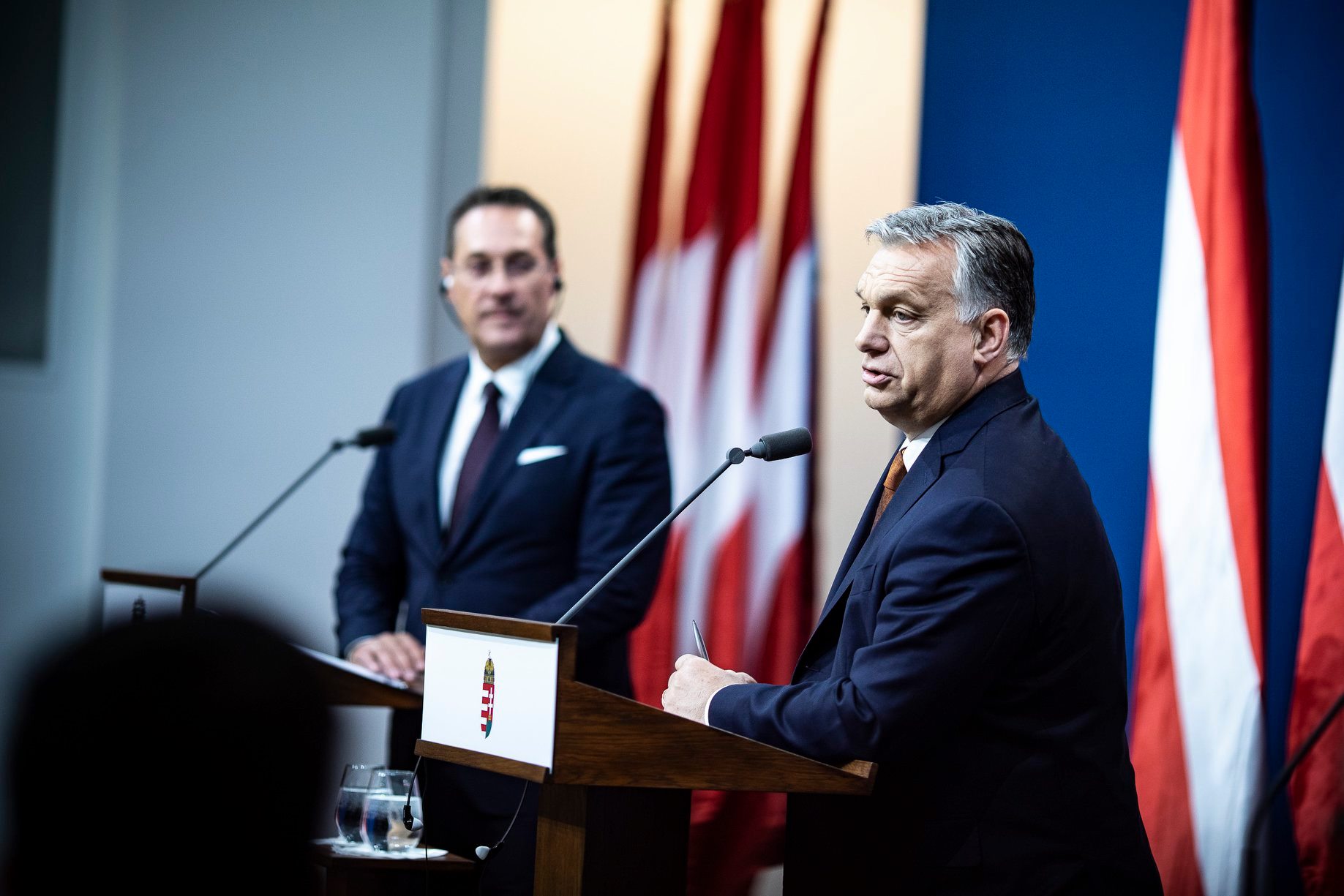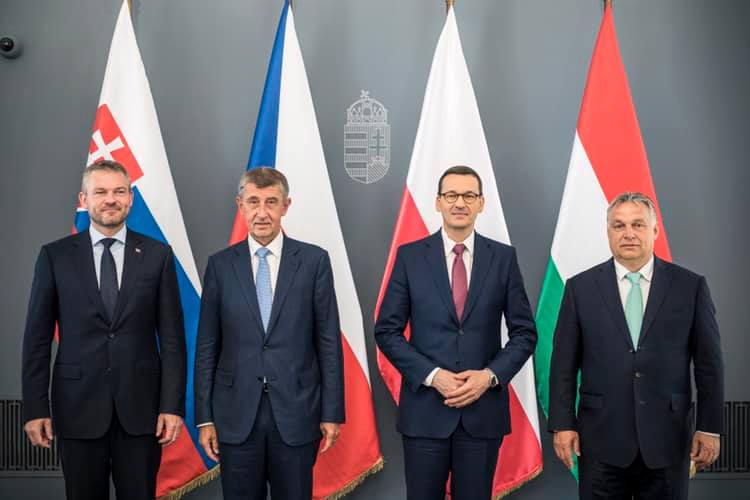Poland – In Wednesday’s issue of the tabloid Fakt, which is the best-selling national daily in Poland, the announcement that the Russian army will be sent to the breakaway republics in eastern Ukraine, and perhaps soon beyond, is compared to the partitions of Poland that were conducted by Russia, Prussia and Austria in the late 18th century. “Second partition of Ukraine – A black day for Europe”, reads the headline, above a photo of an enraged Vladimir Putin, dressed as the Tsar of all the Russias. The cover page’s main headline reads “Putin Zaborca”, meaning “Putin the occupier” or “Putin the invader”, the Polish word Zaborca referring more specifically to each of the occupying powers that partitioned Poland and ruled its territory for more than a century, until 1918. In the corner, the editorial commentary in Ukrainian and Polish says that the Poles will never accept that Ukraine be torn apart by Russia and reproaches the West for its inaction, and that reproach is illustrated by portraits of Macron, Johnson, Biden, and Scholz with sheepish faces, in miniature under the large photo of the “czar” Putin and surmounted by the headline “What is the West going to do now?”.
“We ordinary Poles, like you, have been disappointed by big politics. We know what it is like to be alone and to see your country torn apart. And yet, just as Poland has survived the turmoil of history, so will you. Be sure that for us Poles, free Ukraine lasts and will last!” reads Fakt’s front page commentary.
Russia’s action in Ukraine is, to say the least, momentarily uniting pro- and anti-government media (Fakt being among the antis). However, at the top of its front page, the pro-PiS newspaper Gazeta Polska codziennie informs readers that “The opposition wants sanctions against… Poland”. It is referring to a meeting organised by the opposition “with representatives of EU institutions concerning alleged violations of the rule of law”. The front page photo is of Russian tanks, with the headline “Russians have entered Ukraine”, and the text: “Vladimir Putin’s recognition of the independence of the self-proclaimed republics of Donetsk and Lugansk immediately led to far-reaching consequences. Since Monday evening, columns of Russian weaponry have been moving in. There are also many provocations. The West warns that Russia may want to take control of the entire Donetsk and Lugansk oblasts, not just the areas where pro-Russian terrorists and mercenaries are located. According to the Kremlin, Ukraine has no right to sovereignty.” Below the front page photo, two inside page articles are signalled to potential readers: “They impose the first sanctions against Russia” and “Poland is preparing for its defence”, about a draft “fatherland defence law” just adopted in the Council of Ministers. “‘Poland must have armed forces that are adapted to the current situation’, said Deputy Prime Minister Jarosław Kaczyński.”
On the opposite side of the political divide, Gazeta Wyborcza, a left-wing daily, had a front page highlighting the “First sanctions against Russia”. “In response to Vladimir Putin’s recognition of the Donbass pseudo-statelets, the European Union has cut off the Russian central bank from the financial markets and Germany has suspended the commissioning of the Nord Stream 2 gas pipeline”, the newspaper says in the headline of the front-page article of Wednesday’s edition. Below, as if echoing Gazeta Polska codziennie’s attack on the attitude of the opposition, there is a reference to an article about the division of assets carried out between Prime Minister Mateusz Morawiecki and his wife in 2013, whereby Morawiecki allegedly transferred real estate to his wife “before the 2015 elections”. The newspaper’s editorial on page 2 calls for “Europe to stand up as one for Ukraine, to support it not only politically, but also to arm it and help it economically”, and also for “Europe to impose the toughest sanctions”. But the editorial writer also criticises the Polish government for being formed “by politicians who attack the European Union and even demand that Prime Minister Mateusz Morawiecki sabotage it from within”, which is a reference to the action of the Minister of Justice against the rule of law mechanism and against the European Court of Justice’s ultra vires judgments. The sentence highlighted by Gazeta Wyborcza reads: “It must be said clearly today: whoever wants to weaken the European Union is acting in the interests of Russia. In the Polish government, there should be no place for such politicians.”
The daily Rzeczpospolita usually stands in opposition to the Morawiecki government too, but it is not so politically committed as Gazeta Wyborcza or Gazeta Polska codziennie, and it is also considered more serious and less flashy than the tabloid Fakt. On Wednesday, it published an article entitled “Putin is preparing for war”. The caption under the headline reads: “Russia recognises the independence of self-proclaimed statelets in eastern Ukraine. This considerably reduces the scope for diplomacy and opens the door to invasion. All the more so since the West’s sanctions are soft.” As can be read in the article from Rzeczpospolita, “History has accelerated. On Monday evening, the heads of the ministries in charge of the use of force and all those who have real power in Russia gathered around Vladimir Putin in the Kremlin. According to a carefully written script, they told the commander-in-chief what he wanted to hear: that Ukraine was preparing to invade the territories that were detached from it in 2014, the so-called Donetsk and Lugansk People’s Republics. And that this will be the prelude to the genocide of the Russian-speaking population. Unless Moscow comes to their rescue. (…) The risk of war is also fuelled by the fact that the authorities of the self-proclaimed republics, which control about a third of the area of the two oblasts, want to conquer the whole of these administrative units, including the strategic cities of Mariupol and Kramatorsk. Moscow does not dissociate itself from this. In an extraordinarily aggressive speech on Monday, Putin questioned the very right of an independent Ukrainian state to exist. ”
Being the newspaper of the economic elite, Rzeczpospolita noted on Wednesday that “All of Europe, including Poland, will pay the price of sanctions against Russia”. The article with this headline informs readers that Russia is the third largest non-EU market for Polish exports and Ukraine the fourth largest. In addition, 75% of Polish coal imports come from Russia, coal being the basic fuel for electricity production in Poland, even though there are also many mines in the country (but they are often not very profitable, hence the growing share of imports). The same goes for 55% of Polish gas imports, not including Russian gas imported from Germany, and 65% of oil imports.





